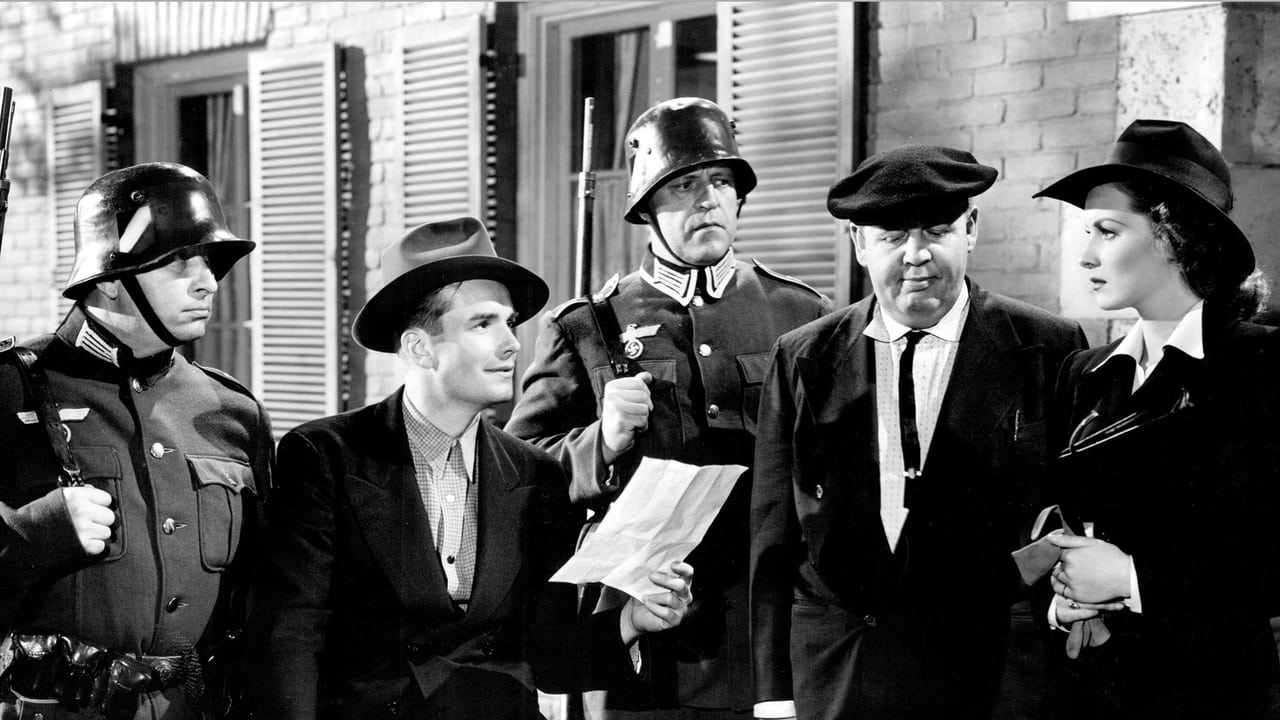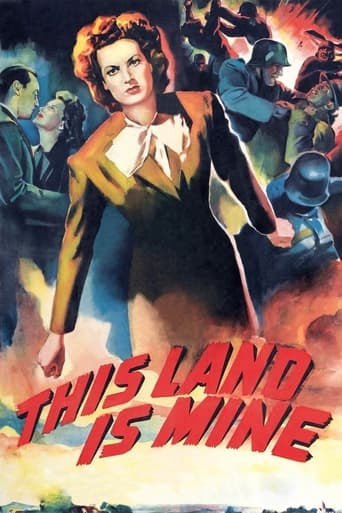

This is more than a little picture.It is about reality in the world of today.Change does not mean it is good, and usually is not good.In many places like North Korea freedom taken by communism,Indonesia torture and murder by rabid Muslims,even mutilation of children because of their hatred for Christians. The cheap politics of the nations are creeping into America and our own politicians do nothing or they even welcome it. They use slanted words to hide the truth and people are lulled to sleep or excuse their selves because they refuse to stand for what is right.But unlike the school teacher, people can call their courage in to activity against tyranny.This land is ours if you are an American.Tell the jackasses and prevaricators to get out if they do not like our Constitution and our individuality and sovereignty.GREAT Movie; far above any thing that has come out of Fairywood in many years.
... View MoreFrom what I knew about this film, I wasn't expecting all that much since the critical reception I've read wasn't all that good. However, it is actually a rather good story about the Nazi's invasion of France. A milquetoast teacher (Charles Laughton), dominated by his harridan mother (Una O'Connor), finds he must fight for his principals and beliefs when the Nazis take over his town. He is in love with a fellow school teacher (the beautiful Maureen O'Hara---who wouldn't be?) whose brother (Kent Smith) is doing his best to sabotage the Nazis and ends up being betrayed by O'Hara's fiancée (George Sanders), who secretly supports the Nazis. Laughton is accused of his murder and put on trial. He decides to face his fate with dignity and departs his classroom after making a riveting speech to his students that is pure propaganda but magnificent drama! O'Connor may grate on the nerves at times, but everything she does for the obsessive love for her son is believable. O'Hara as always is a combination of graceful beauty and indestructible feistiness. Sanders makes the most scary civilized villain-the worst kind. He makes a good pair with Nazi Walter Slezak (later the Nazi villain in Hitchcock's "Lifeboat"); To see one clean hand (Sanders) washing the other one (Slezak's) and becoming equally filthy (metaphorically speaking) is very interesting, and makes Sanders' downfall most gratifying.
... View MoreI can vaguely remember seeing this movie on television years ago, and recalled it as a movie with an anti-Nazi message. Seeing it again recently, and with a lifetime of reading behind me, I realize it has further depths of meaning. Despite the pretense of being set "somewhere in Europe," it is beyond doubt that Renoir had France very specifically in mind. He was a French émigré, and it's clear that he has a message for his countrymen about the great number of them that chose to collaborate with the Germans. But the film is not a sledgehammer, in that the Germans are not portrayed as the stereotypical jackbooted thugs. Their official voice in the film, the officer played by Walter Slezak, has a silky sort of charm and shows how easy it can be to cooperate in the name of so many things - peace, order, stability, etc. etc. Laughton's final courtroom speech has so many specific references to the situation in France that it cannot be interpreted as other than such. And the final finishing touch is Laughton's last lesson to his students before being taken away - he reads from the "Declaration of the Rights of Man" from the French Revolution.Aside from that it is an excellent story very well told, and the production values are extremely high - the print I saw looked excellent even after 60-some years. The cast, of course, is superb, with Laughton, Slezak, and Maureen O'Hara. Particularly good is George Sanders, in a role very different from his stereotype as the suave and debonair cynic. The whole "mama's boy" aspect of Laughton's character is a bit heavy-handed, but it's still to watch Una O'Connor as his mother (you just can't help recalling her tavern woman's part in "The Invisible Man").Thsi is not just an excellent movie, but an interesting historical artifact as well.
... View MoreThere are a number of very good performances in this picture -- Laughton, for one (an actor who was never afraid to present himself, when necessary, as both ludicrous and repulsive, but who manages to conjure up hidden depths in the same character), but also George Sanders, who supplies a sensitive portrayal of a man who just wants everything to run smoothly... until he discovers that one cannot stop at only one betrayal. Walter Slezak channels Francis L. Sullivan ("Pimpernel Smith") in the role of a corpulent, intelligent Nazi, Philip Merivale makes a convincingly idealistic headmaster, and, unexpectedly, Una O'Conner is surprisingly effective as the hero's fierce old mother. The performance slips occasionally into more familiar grotesquerie, but the vital element of fanaticism is well conveyed: this is a mother who will do anything for what she sees as her helpless lamb, even if her ideas of what is in his best interest do not always concur with his own.Maureen O'Hara -- so memorable as Esmeralda to Laughton's 1939 Quasimodo -- I found to be less convincing here. I'm not sure if that's the fault of the actress or the character; her delivery of lines when she discovers the truth about her brother is particularly cringe-making, alas. Kent Smith, meanwhile, is played more or less as a bland all-American hero: his best lines (and acting moments) come in the confrontation scene with George Sanders, although for most of the film it's hard to realise that the two men, so different in seniority (Sanders is a high-ranking official in charge of the whole goods yard, possibly the whole station: Smith is only a duty signalman under him, and appears at least ten years younger, although the two actors were almost the same age) and in character, are supposed to be close friends. The chase sequences involving Smith's character are successfully gripping.But my major problem with the film is that it's just too blatantly preaching to the audience. The broad colloquial Americanisms, though they jolt in such a Continental setting, are understandable in a US-produced film aimed at the home market: but the all too obvious Hollywood-type propaganda elements damage the film by seriously wounding its plausibility. Characters make speeches that are clearly aimed at convincing the audience back home rather than at influencing their fellow-characters: the doctrine of "life, liberty and the pursuit of happiness" is preached. The moral is punched home with a sledge-hammer.
... View More